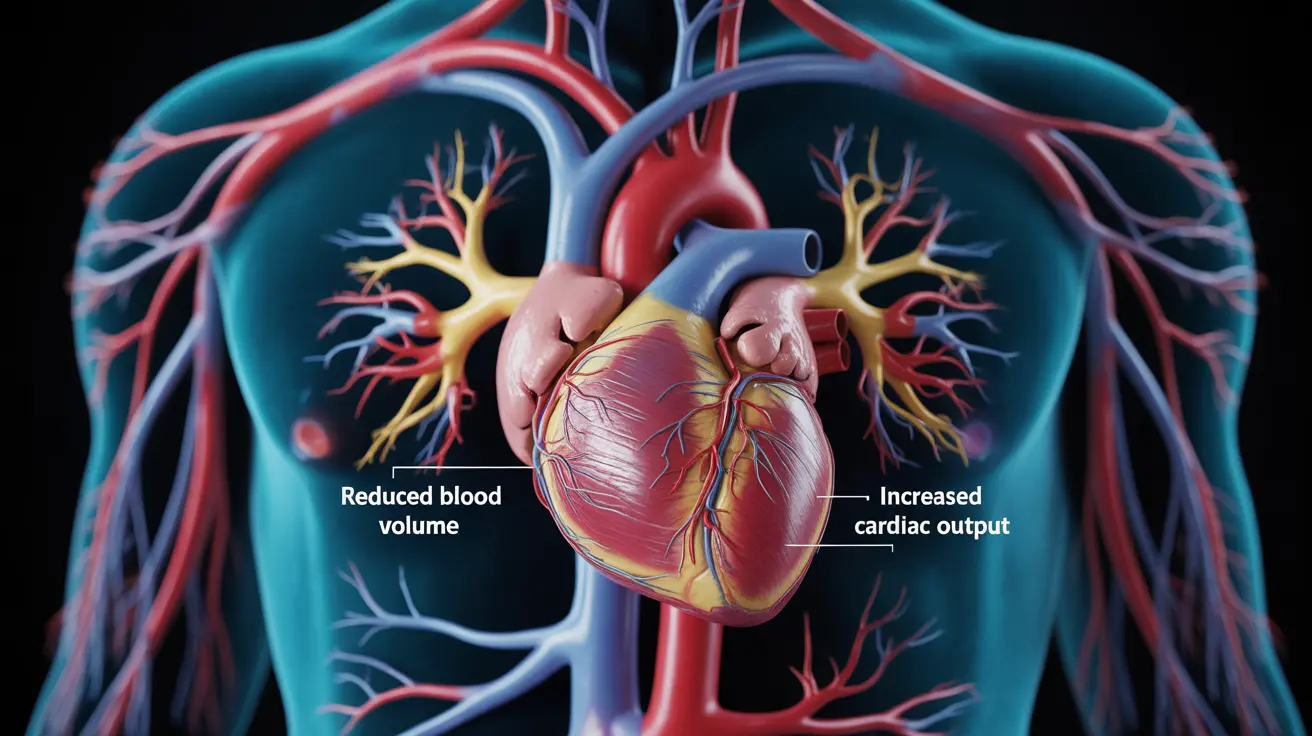When your body lacks adequate hydration, it can trigger various physiological responses, including changes in your heart rate. Understanding the relationship between dehydration and heart rate is crucial for maintaining overall health and recognizing potential warning signs before they become serious.
The connection between dehydration and cardiovascular function is complex, involving multiple body systems and mechanisms. This article explores how dehydration affects your heart rate and what you can do to prevent and manage these symptoms.
How Dehydration Impacts Your Heart Rate
When you become dehydrated, your blood volume decreases, causing your heart to work harder to pump blood throughout your body. This increased workload often results in a faster heart rate as your body attempts to maintain adequate blood flow to vital organs.
The heart typically responds to dehydration by:
- Beating faster to compensate for reduced blood volume
- Working harder to maintain blood pressure
- Adjusting to changes in electrolyte balance
The Role of Electrolytes in Heart Function
Dehydration doesn't just affect water levels – it also disrupts the delicate balance of electrolytes in your body. These minerals, including sodium, potassium, and magnesium, are essential for proper heart function and rhythm regulation.
Critical Electrolyte Imbalances
When dehydration occurs, several electrolyte-related issues can develop:
- Sodium imbalance affecting nerve impulse transmission
- Potassium fluctuations impacting heart rhythm
- Magnesium deficiency potentially causing palpitations
Recognizing Dehydration-Related Heart Symptoms
Early recognition of symptoms is vital for preventing serious complications. Common signs include:
- Rapid heartbeat or heart palpitations
- Dizziness or lightheadedness
- Fatigue and weakness
- Dark urine or decreased urination
- Dry mouth and increased thirst
Treatment and Prevention Strategies
Managing dehydration-related heart symptoms requires a comprehensive approach:
Immediate Actions
If you experience symptoms:
- Drink water slowly but consistently
- Rest in a cool environment
- Consider electrolyte replacement drinks
- Monitor your symptoms carefully
Long-term Prevention
To prevent future episodes:
- Maintain regular fluid intake throughout the day
- Increase water consumption during exercise or hot weather
- Monitor urine color as an indicator of hydration
- Consider dietary sources of electrolytes
When to Seek Medical Attention
While mild dehydration can often be treated at home, certain situations require immediate medical care. Seek emergency help if you experience:
- Severe heart palpitations or irregular heartbeat
- Chest pain or pressure
- Extreme dizziness or fainting
- Confusion or mental changes
- Severe weakness or lethargy
Frequently Asked Questions
Does dehydration cause a high heart rate or heart palpitations? Yes, dehydration commonly causes increased heart rate and palpitations as your heart works harder to compensate for reduced blood volume.
How does dehydration affect electrolyte balance and heart rhythm? Dehydration disrupts essential electrolyte levels, particularly sodium and potassium, which can directly affect heart rhythm and function.
What are the symptoms of dehydration-related increased heart rate? Key symptoms include rapid heartbeat, palpitations, dizziness, fatigue, and decreased urination, often accompanied by thirst and dry mouth.
How can you treat or manage a high heart rate caused by dehydration? Treatment involves careful rehydration with water and electrolyte-containing fluids, rest, and monitoring symptoms while avoiding overexertion.
When should you seek medical help for dehydration and heart palpitations? Seek immediate medical attention if you experience severe palpitations, chest pain, confusion, fainting, or if symptoms persist despite rehydration efforts.




